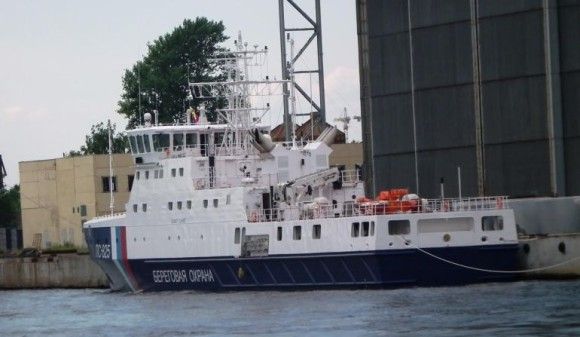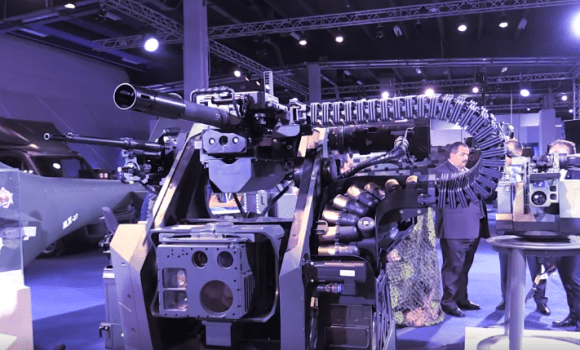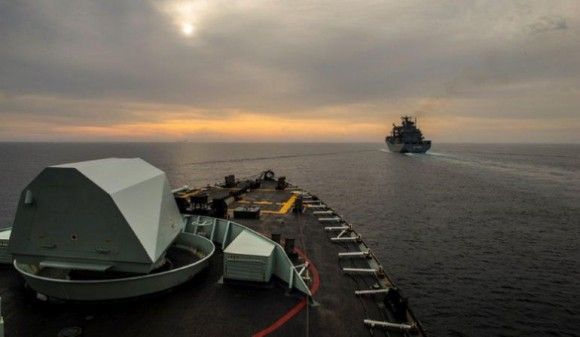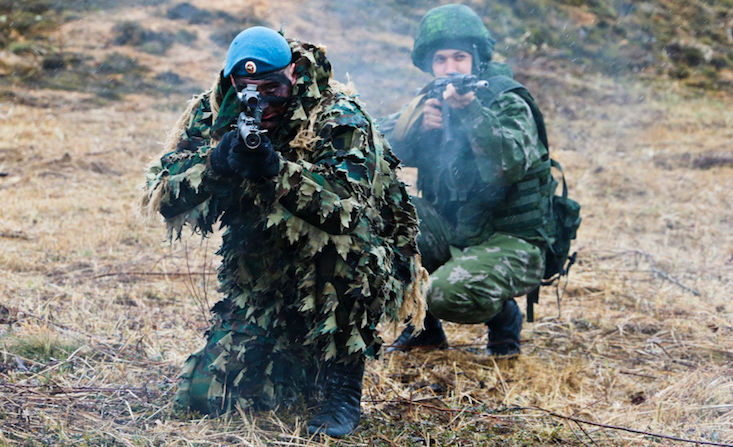Strona główna
Russian Aggression Against Ukraine in 2017 [Forecast]
Most of the Ukrainian experts suggest that an open conflict with Russia is unlikely, which does not mean that such scenario is not being planned by Moscow. Here, other priorities pursued by the Kremlin may be of key significance: presidential election in France or parliamentary election in Germany are strategically more important than a conventional conflict which, without any doubts, would be much more costly and could have a potentially uniting impact on the western states.
We already got acquainted with two fairly important analyses created for the year 2017. Bloomberg is expecting that a line of communication is going to be established between the European elites and Moscow, and new arrangements will be made, when it comes to the spheres of influence within Eurasia – creating a so called Yalta 2.0 agreement. Stratfor Agency, on the other hand, mentions a great chance placed in front of Vladimir Putin, for creating a chaos in the Euro-Atlantic region. Moreover, the said think-tank also expects increased militarization seen on the part of Moscow, followed by numerous offensive steps taken in the global dimension. Despite the explicit declarations made by Olexandr Turchynov, Secretary of the Ukrainian National Security and Defence Council, who stated that in 2016 Ukraine has not lost a single square metre of its territory, and who promises that next year, within the area within which the fights are going on, is going to bring a breakthrough, the analysts based in Kiev are equally pessimistic.
A majority of the Ukrainian experts suggests that an open conflict with Russia is unlikely, which does not mean that such scenario is not being planned by Moscow. Here, other priorities pursued by the Kremlin may be of key significance: presidential election in France or parliamentary election in Germany are strategically more important than a conventional conflict which, without any doubts, would be much more costly and could have a potentially uniting impact on the western states. It should be stressed though, that varied dynamics of the irregular armed conflict are expected to be seen, mainly when it comes to involvement of so called “militias” of so called “people’s republics” (not regular units of the Russian Army), since such units constitute an effective tool in the process of destabilizing the situation in Kiev, and a major card, when it comes to the dialogue with the West. On the Orthodox Christmas (i.e. 7th January) it is expected that the separatist activities would become more intense.
It would be a lot cheaper and safer for Moscow, to further destabilize Ukrainian society and politics, especially through employment of agents of influence. The list of those agents includes names such as: Rinat Akhmetov, Viktor Medvedchuk, Yulia Tymoshenko, Nadia Savchenko, Dmytro Yarosh, as well as a number of less known politicians, journalists, NGOs or financial organizations who, directly or indirectly, through Pro-Russian interest groups, above all - through pro-Russian oligarchs, still represent or protect and pursue the Kremlin’s interest in Ukraine. It could also be added that Ukrainian Institute for the Future considers the scenario in which Putin and Trump get close, to be the most plausible one. Then, a tough dialogue regarding the division of spheres of influence would take place, with simultaneous imposition of pressure on Ukraine, when it comes to Minsk Memorandums and their implementation. Subsequently, the US financial support for Kiev would be diminished, and sanctions imposed on Russia, following the Donbas conflict, could be, potentially, partially cancelled. Finally – we would witness ultimate and practical acceptance of the annexation of Crimea.
Russian Actions Against Ukraine on the International Level
- Destabilization of the internal situation and foreign policies of Lithuania, Latvia, Estonia, Poland, Belarus, Slovakia, Moldavia, Czech Republic and Germany, especially within the Ukrainian dimension, in order to interfere with the economic and political support for Kiev; the historical issues would be of particular importance here, same would apply to the ambition-driven sphere of the given nation (offences, provoking, criticizing, amplification of conflicts between the politicians, ethnic or social groups on the basis of the current and historical contexts in the countries that are the Ukrainian neighbours; recently the Russians have also even made a claim that the Belorussian language is an invention of the Russian intelligence, and that Belarus, as a state, has never been and is never going to be autonomous, similarly as Ukraine),
- Economic attacks, info-war, and economic destabilization on the East and in the West: the former issue is focused on interfering with the functioning of the traditional trade routes used by and between Ukraine and the Commonwealth of the Independent States, while the latter concerns blocking beneficial decisions or further access to the formal cooperation, both at the level of the EU, as well as at the level of the individual states, through support provided for the extreme left and right parties that are not in favour of expansion, or even existence of the EU, in its current, or in any other shape,
- Attacks, discrediting, making it impossible to use the responsibilities, information campaigns, protests against work of the foreign experts in Ukraine (Polish experts would be especially exposed and vulnerable here, as usual),
- Continued information warfare and psychological operations against Ukraine in the Western States, with the use of the Kremlin-controlled media outletsand propaganda outlets (RT, Sputnik), as well as with the use of pro-Russian politicians, celebrities, moral role models, journalists, experts, and with the use of a number of anti-European/pro-Russian organizational and political structures; all of that would be done for the purpose of constructing a negative appearance of Ukraine globally, and for the purpose of imposing a greater international pressure in Kiev, which will be used by the pro-Russian forces in Ukraine, for the purpose of further destabilization of the country.
- Making use of the issue of the Ukrainian minorities abroad a) politically - through a variety of attacks against the Ukrainian diaspora, its structures and organizations, b) economically – through using the anti-immigrant and xenophobic rhetorics.
-Making use of feedback and snowball effect within the Russian propaganda, as amplifying the narrative covering the negative attitude adopted by Kiev or lack of European political will to get closer to Ukraine (case of the Netherlands) is quite beneficial for bolstering the pro-Russian propaganda in Ukraine, as well as globally, targeting the pro-Western aspirations of the majority of the Ukrainian society, and amplifying and legitimizing other anti-Ukrainian actors in Europe,
- Further intensive expert and financial support provided by Russians for the Ukrainian institutions, media and organizations who cover the issue of Intermarium - here, the Kremlin is willing to popularize a belief that Intermarium could become an alternative solution, which should it be implemented instead of integration with NATO and the EU. This would be the “third” way narrative, introduced with Ukraine at its centre, besides the narratives assuming that alliance with the UE and alliance with Russia could be created.
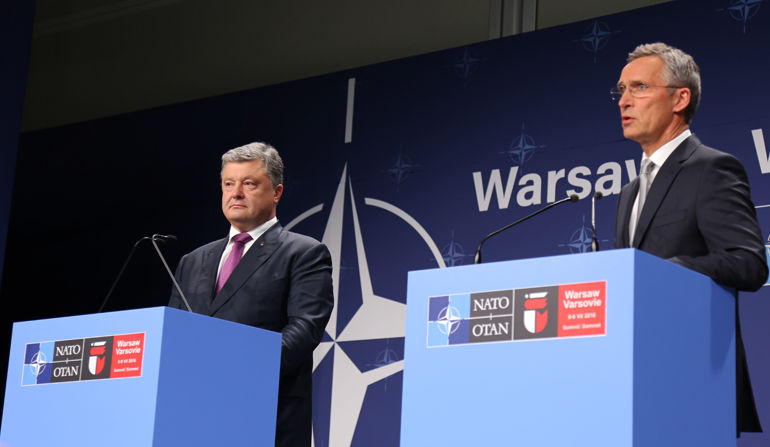
Russians Actions Against Ukraine – Taken Internally
- Accenting the political crisis, lack of trust in case of the relationship between the Ukrainian authorities and the society, economic and financial problems, crises, slow tempo or ineffectiveness of the reforms, through all of the channels available for the Russian propaganda practitioners,
- Escalating, amplifying and inspiring the political scandals, especially in the anti-corruption operations area, and in the area of political reforms, painful for numerous social groups, which is to create negative emotions directed towards the authorities, political conflicts, and, ultimately, hamper the reforms and discredit the experts, politicians, journalists, social activists of NGOs, and questioning the image of Ukraine and its leadership,
- Making use of the issue of diversifying the energy supplies and reforms implemented within the whole sector for the purpose of heightening the tensions and supporting the opposing forces which may act against the government and reforms as such (increased electric energy fees, gas fees, as a result of tailoring the system to the guidelines issued by the international organizations), which is going to become a fuel for the populists and for the overtly Pro-Russian actors, above all by the main successor of the Party of Regions, the Opposition Bloc.
- Financial and speculative attacks (also against the Ukrainian currency - coordinated or carried out by the Russian oligarchs, as well as political and economic provocations (accusations of illegal acquisition of the Russian gas, unpaid interest for the Russian companies, espionage or sabotage),
-Destabilization of the situation in the districts at the borders (Lviv Oblast, Zakarpattia Oblast, Odessa Oblast) - above all through establishment of local structures (parties, associations, organizations, communities), officially for the purpose of democratization and reinforcement of the local self-governing initiatives, in reality, as a cover for decentralization, federalization or autonomy driven actions, in order to have an influence on Kiev, hamper the reforms and directly carry out information operations and attacks (e.g. through amplification of the narrative, suggesting that Ukraine is internally torn by conflicts, destabilized, and for the purpose of instrumental use of the ethnic minorities: Polish, Hungarian, Romanian or Russian),
- Inspiring, escalation and amplifications of religious division , especially between the Ukrainian Orthodox Church (Moscow Patriarchate) and the Ukrainian Orthodox Church (Kiev Patriarchate), or between the Orthodox and the Ukrainian Greek Catholic Church, which would lead to further and deeper destabilization of the country through transfer of tension to the sphere of beliefs, covered by a fight for “morality”, which may also be used against politicians at regional and state level,
- Making use of paramilitary structures and criminals (sport organizations, mafia, smugglers or pro-Russian Cossacks) for sabotage, creation of chaos and feeling of danger within the Ukrainian society. Moreover, this may also be used for the purpose of escalating the tensions on the background of nationality (attacks against the minorities, foreign tourists), as well as create camouflaged attacks carried out (supposedly) by the neighbours against the Ukrainian citizens, in order to intensify, make it more difficult, or even impossible to maintain a political dialogue with the given state (Poles belong to the high risk group, especially in the Lviv Oblast, same applies to the Hungarians living in the Zakarpattia Oblast),
- Restating the issue of bilingualism in Ukrraine which probably would be connected to the Kiev’s policy towards the occupied Luhansk and Donetsk Oblasts, and towards the occupied Crimea (amnesty for so called “people’s militias”, financing provided by the Ukrainian state, for reconstruction of infrastructure or settlement of financial disputes, such us the ones related to the Ukrainian railways). All of that would be done in order to amplify the internal conflicts and further polarize the Ukrainian society with a reference to one of the main topics of the Kremlin’s propaganda, with the Kremlin willing to make use those topics in its foreign policy and in its internal propaganda, namely protection of the Russian minorities outside Russia; here, it is highly probable that well known or controversial persons would be used - including Tymoshenko or Savchenko - the latter one has already established a political party and is directly accused of working for the Russians,
- Creating ideological tensions - it shall be expected that new extreme and ultra-right movements become active, calling for: a) clearing the country/authorities from traitors; b) another revolution; c) providing a greater autonomy to the regions; d) cooperating with the foreign radicals; e) withdrawal from integration with the EU or NATO; f) reconstruction of the Ukrainian nuclear arsenal,
- Hacker attacks against the Ukrainian military and critical infrastructure, which would paralyse the country, create fear and a perfect foundation for change of the authorities, unrest or provocative attempts at paralysing the country through “revolution” carried out by the Ukrainian NGOs and patriots,
- Escalation of the armed conflict is theoretically plausible, however the most possible scenario, at the moment, is seen that this could happen only through the military structures of the Luhansk and Donetsk republics; one of the main signals about the preparation of a new phase of a conventional conflict would be seen in an attempt of reconstructing the airfields in the Donetsk or Luhansk areas, or attempts of creating runways elsewhere, which is, nonetheless, quite difficult, under supervision of the foreign observers or the Ukrainian forces.
- Continued information warfare and psy-ops tied to the Russian media, designed to reach the Ukrainian society, experts, journalists, scientists, military and the individual social groups, especially the Russian-speaking ones – the Russian information warfare is going to be directed towards questioning the narrative of the Ukrainian media, politicians and experts; we may also expect that new media would be created, while the existing would be coordinated more towards widening and legitimizing the pro-Russian content, amplifying the disinformation and political provocations (e.g. Ukrainian Army attacks the civilians, fascism, increasing prices of the European gas, West turning its back on Ukraine, Ukrainian society being lied to by the politicians, disintegration of the country, Polish; Hungarian or Romanian attack against Ukraine, even in joint coordination, dramatic situation of Ukrainians/Russians in Donbas/at the frontline/in the neighbouring states).
Summary
The Western experts, in majority, seem to still ignore the fact that the Russian plans, including the military campaigns, are a subject to long-term planning. The annexation of Crimea or Donbas military operations scenarios have been prepared long before the Euromaidan Revolution, while dismantling of the Ukrainian defence structures, and infiltration of the state structures by the Russian intelligence have been going on for years. The current situation, as well as the Western reactions are thus an expected element of the long-term strategy adopted by the Kremlin. Strategic planning arranged for decades is also facilitated by the authoritarian political situation in Russia. It also has a positive impact on advanced coordination and Russian operations of the intelligence services, which is virtually impossible in the western democracies. The expansive analytical base makes it possible to quickly react and adapt the plans to short term actions.
In the light of the fact above, the Ukrainian analysts seem to have a unanimous opinion – Russia is not afraid of the Western sanctions and it is going to wait them out, which, in a long term, is less costly than an open war. Moreover, the Russians will also retain the conquered territory, effectively block further integration of Ukraine with the western structures, they will also have an ability of effectively influencing the political situation within the neighbouring state. At the same time, Moscow would still be able to maintain a multi-level dialogue with politicians and businessmen globally, preparing a ground for new circumstances of the upcoming chaos that may potentially emerge in the United States of America and Europe. On the other hand, it is expected that final decisions concerning the Syrian issue are going to be made in the late spring, which, would allow Russia to transfer major forces back to the Ukrainian theatre.One of the decisive factors here is seen in the events that may unfold on line between Moscow, Beijing and Washington that could open some kind of rivalry between these states, which would force the Kremlin to place the focal point of its interest on the North Pole, or in the Pacific region.
Ukraine is needed by Russia in the geopolitical dimension. The fact that at the moment, most of the experts do not expect an open war in Ukraine does not mean that the goals pursued by Russia have changed. The Russian propagandists make effective use of the Western weaknesses, as well of the fact that the European societies have got “tired with Ukraine”.
The future of Ukraine, decisively, is going to be dependent especially on the stance of its allies: United States of America and Germany. Nothing suggests that a tragedy is close, however most of the Ukrainian experts (theorists and practitioners) remain convinced that a full-scale war is only a matter of time.If the Russians come to a conclusion that they cannot stop the Ukrainians from going West, most probably a decision is going to be made to maximally eradicate or take over the population, intellectual, technological and natural resources. From the Ukrainian point of view, should the scenario in which Putin and Trump get close come true, the latter President may want to make use of such situation to “raise the stakes”, which may lead us towards escalation of the conflict, or increase of control over the Ukrainian territory.
Adam Lelonek, PhD

